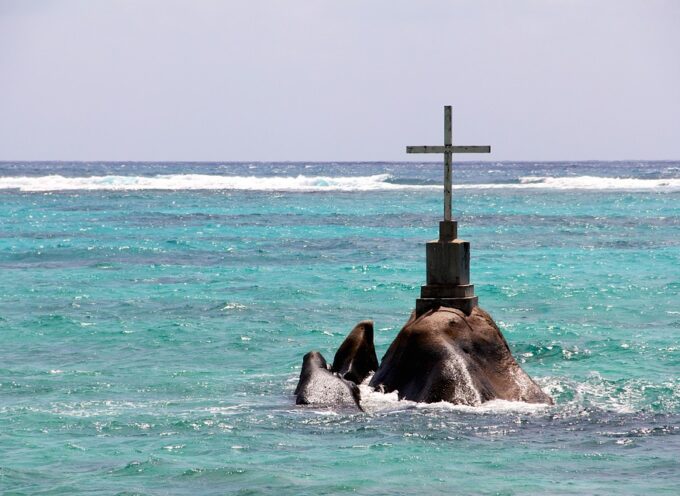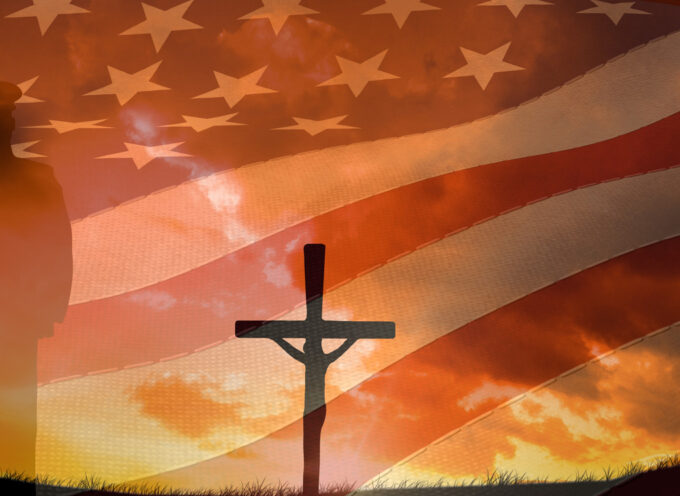When Christians want to answer the question, “What is a Christian view of politics?” it can be tempting to come up with a quick answer by limiting our research to a couple of Bible passages that explicitly address the Christian’s relationship to the governing authorities. Or, alternatively, it can be tempting to jump immediately to Bible passages that address religious liberty, the value of human life, the nature of marriage, or some other public policy issue.
However, if we conduct our investigation by looking only at a few isolated passages, we will miss the Bible’s richest and most profound teaching. We will miss its fuller perspective on culture and politics; we will misunderstand those isolated passages because our perspective does not arise from within a fully-formed Christian worldview. Similarly, if we allow our minds to leap to specific issues of public policy, we will be trying to build a “house of policy” without having first laid a foundation.
The only way to overcome a fragmented perspective on politics is to allow the Bible’s master narrative to shape our thinking. Isolated passages shouldn’t be understood, and policies shouldn’t be crafted, in ways that are divorced from the bigger picture. So we’ve got to go back before we can go forward: we need to understand politics from within the Bible’s master narrative—the true story of the whole world.
The Bible’s story can be told in four acts. The first act, Creation, teaches us that God created everything that exists (Gen 1:1) and that God considered everything he had created “good” (Gen 1:31). We might be tempted to pass over this act, thinking that it has little or nothing to say about politics. But we would be wrong.
We should consider two important aspects of the doctrine of creation. First, God created human beings in his image and likeness, uniquely equipping us to act on his behalf (Gen 1:26-27). He chose to govern his creation through us. He has given us the reins. This responsibility is awesome and inescapable.
Second, our responsibility to govern the world includes “culture work.” Culture work entails cultivating the earth to produce food, cultivating relationships to produce flourishing families, and cultivating society to produce a healthy social order. That last task is a political task. That’s correct: there would have been politics even without the Fall. In a world where God commanded human beings to “be fruitful and multiply” (Gen 1:28), our society would have grown ever larger and ever more in need of some sort of collective ordering of human life.
The Bible’s second act, the Fall, teaches us that the first couple’s sin wreaked havoc on the human heart and on society as a whole (Gen 3-11). Humans continue to be social and cultural beings, but our societies and cultures are now corrupted by the sinful inclinations of our hearts. Every sphere of culture—including politics—felt the poisonous effects of sin on that day. For that reason, politics no longer could limit itself to ordering society; now, it would also have to use violence to restrain evil and protect the innocent.
The Bible’s third act, Redemption, teaches us that God’s response to human sin is to offer salvation from that sin (Gen 3:15; Jn 3:16). He provides salvation through the crucifixion and resurrection of his son, Jesus, and that salvation affects us in the totality of who we are. When we experience salvation in Jesus, we are set free to honor God in every aspect of our lives, including politics and public life.
The Bible’s fourth act, Restoration, teaches us that Jesus’ resurrection was a down payment on three future resurrections. God promises that he will save any person who trusts in him for salvation (spiritual resurrection). He promises that Jesus will return one day to resurrect the bodies of those persons who he has saved (bodily resurrection) and to resurrect the cosmos itself (cosmic resurrection). In summary, Jesus’ resurrection secures for us an eternity in a renewed cosmos, in which we will live bodily in the presence of God himself.
What’s more, our future existence will be cultural and political. We know that it will be cultural, because Scripture teaches that the new heavens and earth will be replete with art, architecture, and song. We know that it will be political, because Scripture teaches that God will rule as King over a peaceable empire in which there is no sin and therefore no more violence, pain, tears, or death (Rev 21, 22).
In summary, the Bible’s master narrative teaches us that God created the world, including its social, cultural, and political aspects. In other words, he ordered the world expressly so that we would have society, culture, and politics. Additionally, the narrative depicts sin as an alien intruder in God’s good world, a vandal seeking to derail us in our social, cultural, and political tasks. Finally, the narrative prophecies that Jesus will return one day to install a perfect Kingdom on earth.
Until Jesus returns, he calls us to live out our Christian witness in every sphere of culture, including politics. When we cultivate our witness in politics and public life, we are doing so out of obedience, to glorify God in everything we do (1 Cor 10:31). But we are also doing it as a preview, hoping that the combined witness of the Christian community will give the world a peek of the peace, justice, and universal human flourishing that will be on offer in the new heavens and earth.
Subscribe
Never miss a post! Have all new posts delivered straight to your inbox.








Wow! Thank you for this succinct view of the whole picture! Well done, good and faithful servant of the Most High!!
So what’s a Christian to do now that we are down to two wicked choices in our current political scheme? Write in a third, appropriate, candidate. Or not vote in the Presidential election as a witness to both options being evil? Or another…?
Kay, thank you and good question. If in fact we cannot vote for the front-runner of either major party, I suggest writing in a candidate if your state’s ballot allows you to. If not, vote for an acceptably minor-party candidate. Finally, if not, abstain from voting for President, but make sure to vote for the down ballot. By doing this, you are able to record historically the unacceptability of both candidates. If enough citizens choose this option, both parties will notice the act of protest. This is a tough decision because, as I see it, it is nearly always best to vote for the frontrunner of one of the major parties. In fact, this year I see so many negatives on both sides of the partisan divide that, unless something changes, I will not vote for either frontrunner.